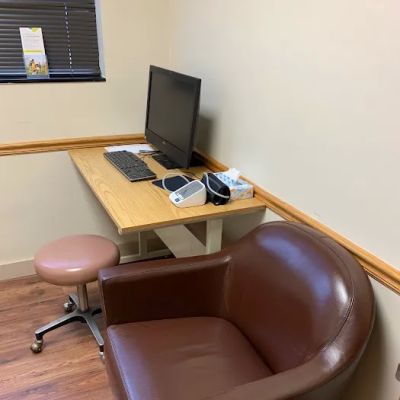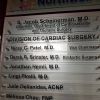- 1-The-Connection-Between-Heart-and-Kidney-Disease
- 2-How-Heart-Disease-Affects-Kidney-Function
- 3-Impact-of-Kidney-Disease-on-Cardiovascular-Health
- 5-Symptoms-and-Diagnosis-of-Coexisting-Diseases
- 6-Treatment-and-Management-Strategies
1. The Connection Between Heart and Kidney Disease
Heart disease and kidney disease are closely interconnected, often influencing each other’s progression and severity. This relationship is sometimes referred to as the “cardiorenal syndrome.” The kidneys and heart work together to maintain body homeostasis, regulating blood pressure, fluid balance, and waste removal. When one organ is compromised, it can lead to dysfunction in the other.
For example, reduced cardiac output from heart disease can decrease blood flow to the kidneys, impairing their function. Conversely, kidney disease can contribute to fluid overload and hypertension, increasing stress on the heart. Understanding this dynamic is essential for effective treatment.

2. How Heart Disease Affects Kidney Function
Heart disease, particularly congestive heart failure, can cause a reduction in blood circulation to the kidneys, limiting their ability to filter blood efficiently. This diminished blood flow can lead to acute kidney injury or chronic kidney disease. Patients with heart failure often experience fluid retention, which worsens both cardiac and renal function.
Studies show that nearly 50% of patients with chronic heart failure have some degree of kidney dysfunction, highlighting the need for integrated care approaches that address both organs simultaneously.
Atlanta Heart Specialists
atlanta heart specialists
4375 Johns Creek Pkwy #350, Suwanee, GA 30024, USA

3. Impact of Kidney Disease on Cardiovascular Health
Kidney disease significantly increases the risk of cardiovascular events such as heart attacks and strokes. Damaged kidneys fail to regulate minerals like potassium and calcium, leading to imbalances that affect heart rhythm. Additionally, kidney disease is linked to inflammation and arterial stiffness, contributing to hypertension and atherosclerosis.
Patients with advanced kidney disease have a higher incidence of left ventricular hypertrophy and heart failure. These complications underscore the importance of early kidney disease detection and management to protect cardiovascular health.
4. Common Risk Factors Shared by Both Conditions
Heart and kidney diseases share numerous risk factors, including diabetes, hypertension, obesity, and smoking. These conditions often coexist in patients, amplifying their adverse effects. Diabetes, for example, can damage blood vessels affecting both heart and kidneys, while high blood pressure strains the heart and causes kidney damage.
Recognizing these overlapping risk factors is vital for prevention. Lifestyle changes such as improved diet, regular exercise, and smoking cessation benefit both organs and reduce overall health risks.
5. Symptoms and Diagnosis of Coexisting Diseases
Symptoms of combined heart and kidney disease may be subtle and overlap, making diagnosis challenging. Common signs include fatigue, swelling in the legs and ankles, shortness of breath, and changes in urine output. Healthcare providers use blood tests, imaging, and functional assessments to evaluate both cardiac and renal health.
Early diagnosis through regular screenings can prevent progression and improve quality of life. Patients with known heart or kidney disease should be monitored closely for signs of the other condition.
6. Treatment and Management Strategies
Managing the relationship between heart disease and kidney disease requires a comprehensive approach. Medications such as ACE inhibitors and angiotensin receptor blockers are commonly used to protect kidney function and control blood pressure. Diuretics help reduce fluid overload but must be used carefully to avoid kidney strain.
Dietary modifications, including sodium restriction and balanced protein intake, support both organs. Regular physical activity and weight management are also crucial components of treatment.
At HeartCare Hub, patients can find specialized services tailored to managing both heart and kidney health, ensuring a personalized care plan that addresses these interconnected conditions effectively.





















Deborah Heart and Lung Center
deborah heart and lung center
200 Trenton Rd, Browns Mills, NJ 08015, USA